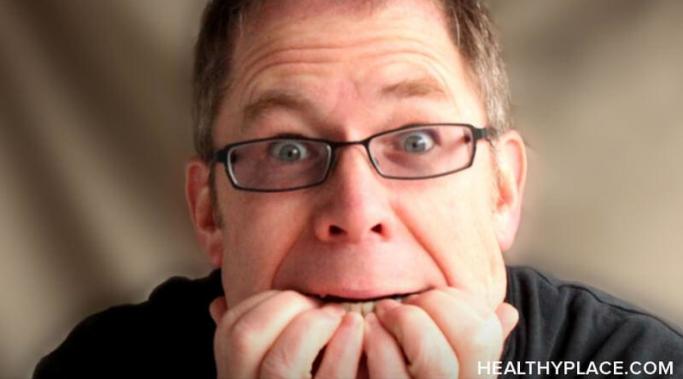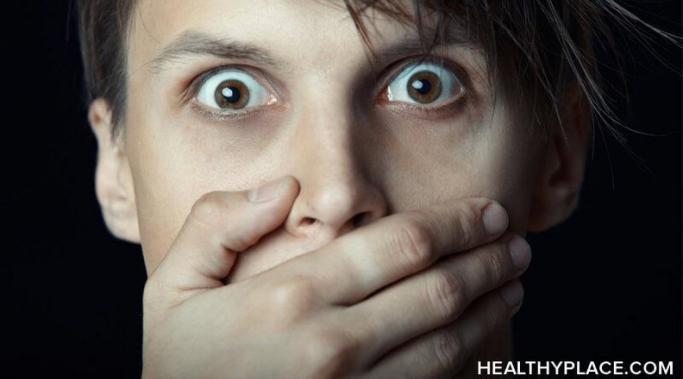Blogs
When my son, Ben, finally began treatment for mental illness, I kept careful notes on all the symptoms I saw between appointments. At best, Ben would see his therapist and/or psychiatrist for 1 hour a week and was often able to hold it together for that one hour in a much better way than he'd been able to do all week with us. So I made an effort to fax these notes to the provider the day before the appointment.
Some read it. Most did not, citing "no time" as the reason.
Really? What kind of session can you have if you don't have all the facts? Families know. They know a lot.
“How drunk do you have to be before cutting your own hair starts to seem like a good idea?” Taz Mopula
Long ago, I had a hypothetical girlfriend we’ll call Prunella Entwhistle. Indeed, it was so long ago I was not yet sober and still cheerfully diving headfirst into debauchery as one might leap into a swimming pool. This was during that blissfully ignorant period in my life when I believed that, as a result of facing down bipolar disorder and defeating it, I had become bulletproof.
By then I’d recovered from several devastating battles with the terrifying illness referred to at the time as manic depression. I had even written a memoir (Invisible Driving) that chronicled my ordeal. Having walked through fire and survived, I bristled with self-satisfied cockiness and swaggered through life like a cowboy breaking in new jeans.
It's hard enough trying to decipher the behavioral symptoms in children who have psychiatric illness. Trying to determine the root cause of physical complaints where no obvious cause exists is next to impossible.
According to Dr. Dimitri Christakis, who wrote an editorial accompanying the study, the results should be cautiously interpreted because they only tested a few tykes, but gosh darn if the data didn't look bad for TV. He even felt the study suggested that media exposure is a public health issue. Why, that means the government can get involved and finally do something about all those brightly colored cleaning supplies who sing silly sea shanties to our children!
Last week I wrote about how psych meds can make you feel boiling hot or freezing cold. And, of course, they can.
What surprised me is the number of people who wrote in here and on Facebook about how they didn't know that. Not only did they not know it, but it had been happening to them and they didn't know it. They didn't make the connection and in some cases the doctor said it wasn't possible (like mine did).
This brings me to something I always say:
An effect that occurs after starting a medication is a side effect until proven otherwise.
Recently my therapist and psychiatrist became concerned about some self-harm urges I've had. Short version: I could either take clonazepam or go to the Crisis Respite Unit. The problem was I didn't want to do either! I was afraid--afraid that I'd get a reputation for benzodiazepine dependency if I took the pill, and afraid I'd get sent back to the state hospital system if I went to Crisis Respite. My fear of the highly unlikely worst-case scenario was self-destructive; it was causing me to reject potentially helpful courses of action.
I consider myself hard to take, stubborn, I'm an over-talker and I don't know when to keep my mouth shut. And I have bipolar so signing up to be my friend is a commitment of which I expect people to tire rapidly. So when I'm having a bad time and someone expresses concern, I know I have a true friend.
Wanting to be in a romantic relationship is normal. But borderline personality disorder (BPD) can add difficulties and frustration to an already complicated situation. More Than Borderline's, Becky Oberg, offers advice on how to know if you're ready. Watch this video on borderline personality disorder and relationships.
Soon after I began researching anything and everything related to Dissociative Identity Disorder, I came across the idea of state-dependent learning. And though the concept – that things learned or experienced under certain conditions, internal and/or external, are easiest to recall under those same conditions – made sense to me, it didn’t make much of an impression. But recently I had a profound personal experience that illustrated clearly to me both the power of state-dependent learning and the revelation of state-dependent memory recall.
When you are in the process of recovering from a chronic mental illness, when you have achieved a state of remission and are free from psychiatric symptoms, you will never forget the impact, the memories, of when you were sick. The flashbacks.







